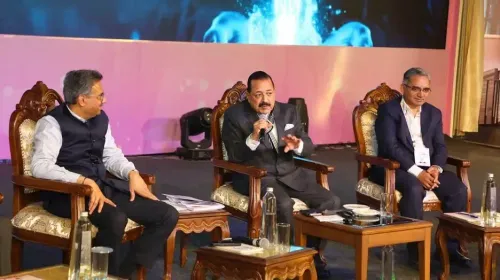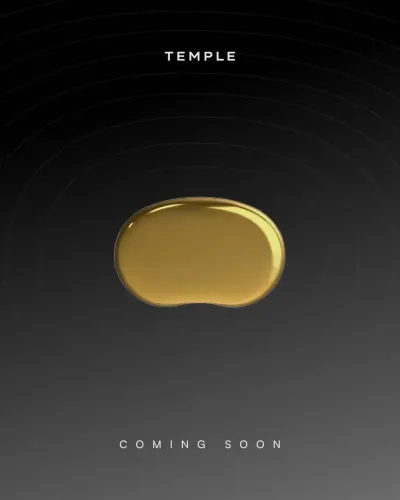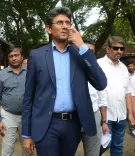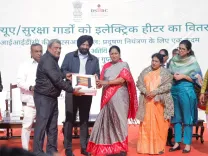Quantum Computing Set to Transform Innovation and Scientific Research: Jyotiraditya Scindia
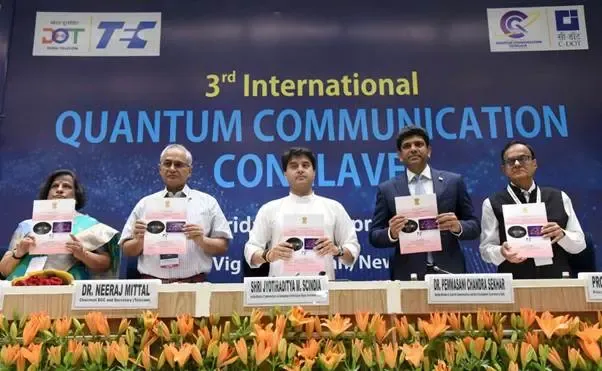
Synopsis
Key Takeaways
- Quantum computing is a major advancement in technology.
- India's National Quantum Mission aims to boost R&D.
- Three critical documents for quantum technologies were unveiled.
- The year 2025 is recognized as the Year of Quantum.
- Investment is being made in various quantum sectors.
New Delhi, April 25 (NationPress) Quantum computing represents not merely a minor advancement but a significant breakthrough that will shape innovation, expedite scientific research, and unveil numerous solutions to human challenges that were previously deemed impossible, stated Union Communications Minister Jyotiraditya Scindia on Friday.
The minister emphasized that the future is not just digital; it is quantum.
“The ripple effects of quantum computing are already influencing not just scientific exploration but also our daily lives. Let us embrace the quantum era with audacity, intelligence, and a strong sense of direction,” he remarked during the third International Quantum Communication Conclave held in the national capital.
This conclave was organized as part of India’s decisive initiatives to take the lead in quantum communication technologies, particularly following the launch of the National Quantum Mission in 2023 with a budget allocation of Rs 6,003.65 crore.
The mission, a pivotal project under the Prime Minister’s Science and Technology Innovation Advisory Council, aims to cultivate and enhance R&D in quantum technologies, while nurturing a dynamic and innovative ecosystem across academia, industry, and startups.
During the event, three essential documents were presented to facilitate and promote the implementation of quantum secure technologies: the Standard on Generic Requirements for Quantum Random Number Generators (QRNG), a Technical Report on Migration to Post-Quantum Cryptography (PQC), and a Technical Report on Quantum Secure 5G/Beyond 5G Core using PQC.
Dr. Chandra Sekhar Pemmasani, Minister of State for Communications, affirmed India’s commitment to spearhead the quantum technology transformation.
“Through the national quantum mission, we are making substantial investments in quantum computing, quantum communications, quantum sensing, and quantum materials. Our flourishing startup ecosystem, our top-tier research institutions, and our industry leaders are already producing homegrown quantum solutions poised for implementation,” remarked Pemmasani.
Principal Scientific Adviser Professor Ajay Kumar Sood noted that the conclave is taking place in 2025, which the United Nations General Assembly has designated as the Year of Quantum.
Sood discussed the progress of Quantum Technologies over the past century, stating, “Today, we are experiencing the second revolution in Quantum Mechanics at the cutting-edge of technology, where we now possess tools to manage quantum systems.”
The conclave was organized by the Telecommunication Engineering Centre (TEC), the technical division of the Department of Telecommunications (DoT), in partnership with the Centre for Development of Telematics (C-DOT).


